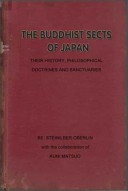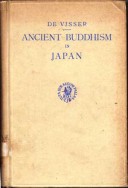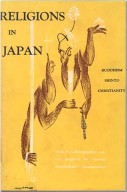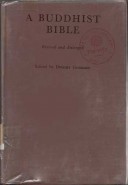Tìm Sách
Sách tiếng Anh-English >> Basic Tenets of Buddhism
Thông tin tra cứu
- Tên sách : Basic Tenets of Buddhism
- Tác giả : C. Nyànasatta Thera
- Dịch giả :
- Ngôn ngữ : Anh
- Số trang : 290
- Nhà xuất bản : Anada Semage, Rajagiriya, Ceylon
- Năm xuất bản : 1955
- Phân loại : Sách tiếng Anh-English
- MCB : 12010000002985
- OPAC :
- Tóm tắt :
Basic Tenets of Buddhism
Aids to study and teaching of the Dhamma
C. NYÀNASATTA THERA
Publish by
Anada Semage, Rajagiriya, Ceylon
FOREWORD
The carbon copy and the first set of the printed sheets of The Basic Tenets Of Buddhism have been in the past years read by several guest and resident student of the Verdant Hermitage and have served as the first introduction to new students and as a Refresh course to advanced students of the Dhamma. Thought most of them did not want to read more than a chapter or two, none could lay the whole manuscript aside but read attentively the whole book from beginning to end and it was to them a real Refresher course in the Dhamma or a good first introduction to a systematic study of Buddhism.
As expressed by most readers, while reading The Basic Tenets of Buddhism, from the first line up to the last page, the reader feels that here a teacher has applied his knowledge of the principles of education, the methods of teaching, psychology of learning and teaching, briefly pedagogy, that is to say, the science and art of teaching, to the exposition of the Dhamma for the adult students of Buddhism.
Acquisition, fixation and application, correct presentation, judicious distribution of the material, using both induction and deduction, analysis and synthesis, starting with the known and the simple, and leading the reader by an easy and graduated course into the realm of the yet unknown or little known and the more complex, forestalling all criticism by answering all possible objections and questions arising out of the exposition, frequent review and restatement of earlier points taught in previous chapters, outlines at the beginning and summaries at the end, brevity and simplicity of expression: all this has been appreciated and praised as the work of an expert in teaching.
CONTENTS
FOREWORD
PREFACE
PART I – THE ESSENTIALS OF BUDDHISM
CHAPTER I
INTRODUCTION: Buddhism in its Relation to other Indian and Western Systems of Thought
Buddhism
The Buddhist
The Buddha
The Dhamma, or the Teaching
The Theravada
The Mahàyàna
The Sangha
The Essence of the Teaching
Spiritual Development
Realization
CHAPTER II
GLIMPSES OF THE HISTORY OF BUDDHISM – The Six Councils
(Sangàyanà)
First council of Ràjagaha
Council of Vesãti
Council of Pãtaliputta
Great council of Lankã, at Aluvihãra in Ceylon
Council of Mandalay in Burma
The Sixth Great council of Burma
Bibliography
CHAPTER III
MENTAL PILGRIMAGE TO THE PLACES “WHERE THE BUDDHA TROD”
Lambini
Kapilavatthu
Rãjagaha and Buddha-Gayã
Benares– Bãrãnasi and Sãrnãth
Sãvatthi
Vesãli, Pãyã and Kusinãrã
Dharmasoka – The King Beloved of the Gods
Megasthenes at Pãtaliputta
King Milinda – Menandros or Menander
Return from Pilgrimage
Bibliography
CHAPTER IV
THE LIFE OF THE BUDDHA
The Life Story of Prince Siddhartha Gotama
The Youth of the Prince
The Quest of the Deathless
The Enlightenment
The First Weeks after Enlightenment
The Buddha as Teacher of the Law of Liberation
The Last Days of the Buddha
Bibliography
CHAPTER V
THE FIRST DISCOURSE OF THE BUDDHA
The Five groups of Existence – The Five Khandhã
The Discourse on the setting in Motion of the Wheel of the Law
Dhammacakkappavattana-sutta
Bibliography
CHAPTER VI
THE SECOND DISCOURSE OF THE BUDDHA
Attã and Anattãor the Self and Not-Self
Anattã-lakkhana-sutta – The Discourse on Not-self
Bibliography
CHAPTER VII
DETAILED ANALYSIS OF THE FOUR NOBLE TRUTHS
Introduction: the Pratical Aspect of the Dhamma
Sacca-vibhanga-sutta, Analysis of the Four Noble Truths
Bibliography
CHAPTER VIII
RIGHT UNDERTANDING
Introduction
Origination of Suffering
Cessation of Suffering
The Discourse on right Undertanding – Sammãditthi-sutta
Bibliography
CHAPTER IX
RIGHT MINDFULNESS
Foundation of Mindfulness
The Foundation of Mindfulness
The Contemplation of the Body
The Contemplation of Feeling
The Contemplation of Mind
The Contemplation of Mental Phenomena as Mental Objects
Bibliography
PART II – PRACTICAL BUDDHISM
CHAPTER X
BUDDHISM – IN SELF-EDUCATION AND PRACTICE
Buddhism as a guiding Practical Philosophy
Buddhism is more than the Dhamma-books
Buddhism Education
Oral Ceremonial Examinations
Subconscious Assimilation by Following Living Examples
The Power of Example
Using Stories in Teaching the Dhamma
The Right Type of Stories
A Practical Demonstration of the Principles Involved
The Trained Buddhist
Moral responsibility
Absence of training
Making ever fresh efforts
Purity of Mind
King Pacetana and his Wheelwright
Gavesi – the seeker
CHAPTER XI
APPLIED BUDDHISM
Buddhism is tolerant
Our duties
The Realism and Optimism of Buddhism
Sources of all Apparent Paradoxes in Buddhism
The Aspiration of a True Buddhist
Sources of criticism
Practice of Pristine Buddhism as guiding Philosophy and Personal
Religion
Work and social service
Recreation and relaxation
Practice of Pristine Buddhist Meditation
CHAPTET XII
THE BUDDHIST VIEW OF LIFE AND ITS PRACTICAL APPLICATION
The Parable of the Four Serpents
The Parable of the Log of Wood
CHAPTER XIII
THE BUDDHIST WAY OF LIFE
The Causes of Dissatisfaction
The Remedy
Resentment and Worry as Sources of Dissatisfaction
Satisfaction of Our Wants
Selflessness
Self-expression
Charity
Transition of Civilization
The Buddhist way of Life as Preparation for the Higher Life in the Dhamma
CHAPTER XIV
NEW METHODS OF TEACHING BUDDHISM IN SCHOOLS
Rapid Refresher Courses in Buddhism for Teachers
The Efficient Teacher of Dhamma
Incentives to Study and Practice
The Language to be used in Teaching the Dhamma
Festive Oral Examinations
New Text-book for Schools and Sunday Schools
Outlines suggested for the Dhamma Text-books for Schools and Sunday Schools
Standard I_VIII or J.S.C
Standard IX or G.C.E, Ordinary Level, Standard X or G.C.E, Advanced Level-Intermediate Buddhism and Buddhism for Teachers of the Dhamma
Concluding remarks
Bibliography
CHAPTER XV
THE SPREAD OF BUDDHISM AND BUDDHISM STUDIES IN THE WEST
The Expansion of Buddhism in the East and the West
The Reasons for the successful and Rapid Propagation of Buddhism in the West
Western students of Buddhism in the East
Buddhism Monasteries in the West
Bibliography
PART III – THE HEART OF BUDDHISM
CHAPTER XVI
THE PROBLEMS OF BUDDHISM
CHAPTER XVII
WHAT BUDDHISM MEANS TO MANKIND
THE SCIENCE AND ART OF BUDDHISM
CHAPTER XVIII
BUDDHISM THOUGHTS ON KARMA AND REBIRTH
CHAPTER XIX
BUDDHISM THOUGHTS FOR THE DAY
The value of Good-will and Loving-Kindness - Mettã
Compassion – Karunà
Sympathetic Joy – Muditã
Equanimity – Upekkhã
Reflection on Impermanence – Anicca
Contemplation of Suffering – Dukkha
Contemplation of Not-self –Anattã
CHAPTER XX
DISCOURSES OF THE BUDDHA
The Exposition of the Discourse on Loving-Kindness or Karaniya Mettã –sutta
The Four Supermundane Paths and Fruitions (Lokuttara-magga-phalã) and the Four Noble Individuals (Ariya-puggalã)
The Exposition of the Discourse on Blessings (Mahãmangala-Sutta)
Exposition of the Vyagghapajja-sutta on Accomplishments
CHAPTER XXI
THE HEART OF BUDDHISM
What is religion
The Life of the Buddha
The Records of the Buddhist Scripture
The Advantage to a systematic study of Buddhism
Buddha – Dhamma – Sangha: Buddhism, the Buddha, the Dhamma and Sangha
The Buddhist and the Essence of Buddhism
Applied Buddhism, the Five Precepts and How and why to observe them
Addendum: the A.B.C of Buddhist Ceremonial for Daily Recital
CHAPTER XXII
THE BUDDHIT MEDITATION ON BUDDHA – DHAMMA-SANGHA
Recollection of the Enlightened One
Recollection of the Dhamma
Recollection of the Sangha
Pli Text of Recollections
CHAPTER XXIII
The Buddhist Meditation on Loving-Kindness – Mettã-Bhãvanã
CHAPTER XXIV
Mindfulness of Breathing
Glossary
Index
 Facebook
Facebook
 Google
Google
 Google+
Google+


















